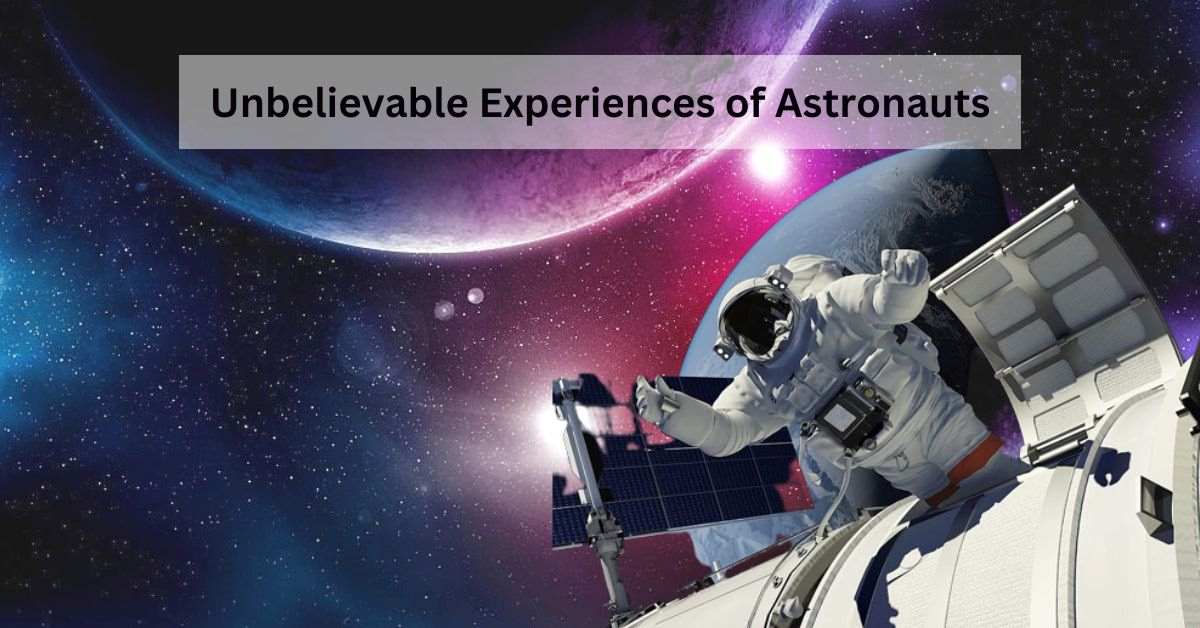Space exploration has always captured the human imagination and the brave men and women who venture beyond Earth’s atmosphere experience a world like no other.
Astronauts have the privilege of witnessing awe-inspiring phenomena and experiencing perplexing experiences that are beyond human comprehension. Here are 13 incredible things astronauts experience in space, giving a glimpse of the breathtaking wonders of the cosmos.
An out of this world view from @Astro_WoodyThe helmet camera from after handing the deployable solar panel to Steve Bowen. The duo will continue their way towards the installation site. pic.twitter.com/rROYfbBVib
— International Space Station (@Space_Station)
June 15, 2023
1. The feeling of weightlessness: One of the most striking things about being in space is the feeling of weightlessness. Astronauts float as if they were in water and must be careful not to collide with things. Everyday tasks like eating, sleeping, and even going to the bathroom become fascinating challenges in microgravity.
2. They have space adaptation syndrome: Space adaptation syndrome (SAS) is a set of symptoms that astronauts experience when they first arrive in space. These symptoms may include nausea, vomiting, dizziness, and headaches.
3. Elongated spine: Living in a microgravity environment has an interesting effect on the human body. Without the downward force of gravity, the spine stretches and decompresses, causing astronauts to grow during their time in space. This increase in height is temporary and astronauts return to their original height once back on Earth.
4. Space Smell: Although space is often described as a sterile environment, astronauts have reported encountering peculiar smells during their space missions. These odors are believed to come from equipment, space suits, and even the astronauts themselves. Some have described it as having a “metallic” or “burning” smell, making it a unique sensory experience.
5. Special eating and drinking habits: Food and drink in space must be specially prepared so that they do not float away. Astronauts also have to eat and drink more frequently than on Earth because their bodies lose fluids faster in space.
What does it take to prepare for a spacewalk?
Here’s a look behind the scenes with @Astro_Woodywho will make his first trip outside the @Spacial station on Friday, June 9: https://t.co/3FapJKkffV
— NASA (@NASA)
June 6, 2023
6. Changes in blood pressure: Astronauts’ blood pressure changes in space due to the lack of gravity. Their blood tends to pool in the lower extremities, which can cause circulation problems.
7. Fluid redistribution: In microgravity, human body fluids are redistributed, causing changes in appearance. Without the force of gravity, fluids move toward the upper body, resulting in a “puffy face” appearance and thinner legs. This phenomenon may require some adjustments, as astronauts often find their facial features temporarily altered during their space missions.
8. Special ways of sleeping: Astronauts sleep in sleeping bags attached to the walls of their spacecraft. They should also wear special eye protectors to block light.
9. Space Gardening: Astronauts aboard the International Space Station (ISS) have the unique opportunity to engage in space gardening. They grow plants like lettuce in a microgravity environment, study the challenges of growing food in space, and explore the possibility of sustainable space agriculture.
10. Time dilation: The theory of relativity plays a role in space travel, causing time dilation. Due to the high speeds and gravitational fields experienced during space missions, astronauts age slightly more slowly compared to their counterparts on Earth. While the effect is minuscule, it is an intriguing aspect of space exploration.
11. Radiation Exposure: Astronauts are exposed to radiation in space. This is because the Earth’s atmosphere protects us from radiation, but there is no atmosphere in space. Radiation exposure can cause health problems, such as cancer.
12. Weird Hair Growth: Lack of gravity can also affect the way astronauts’ hair grows. Your hair may grow in different directions and may also become more brittle.
13. Silence in deep space: Beyond Earth’s orbit, astronauts experience true silence. There is no background noise and they can only hear sounds produced within their spacecraft or transmitted over the radio.
In conclusion, astronauts’ experiences in space are impressive and offer a unique perspective on our place in the universe. From weightlessness to witnessing the wonders of the cosmos, their travels provide a glimpse of the unknown. These 13 lesser-known facts demonstrate the extraordinary and incredible things that astronauts encounter during their time in space, fueling our curiosity and inspiring future generations of space explorers.
Categories: Optical Illusion
Source: sef.edu.vn
